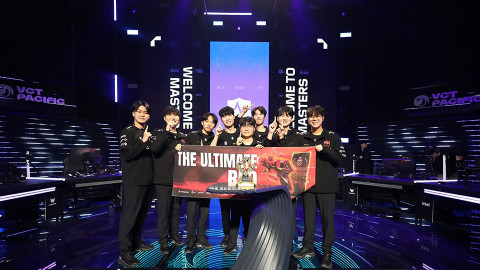
Riot Games is updating its Privacy Notice to allow the company to record in-game voice communications in order to help them better enforce their rules against harassment and disruptive behavior. According to their blog post on Friday, the new system will eventually roll out to a variety of Riot's games, but they will be starting by adding the new system to VALORANT.
"We’re updating our Privacy Notice to allow us to record and evaluate voice comms when a report for disruptive behavior is submitted, starting with VALORANT," Riot explained in the blog post. "If a violation is detected, we’ll take action and remove the data when it is no longer needed for reviews. Even though the legal document update gives us the ability to capture voice data, League of Legends, Wild Rift, and Teamfight Tactics currently have no plans to record player voice chat or expand the voice chat capabilities beyond party voice chat. Legends of Runeterra does not have any plans to implement voice chat."
As far as what motivated the change, Riot cited their desire to build a more "inclusive gaming space" and an environment of "respect, safety, and positivity for all players."
"Disruptive behavior on voice comms is a huge pain point for a lot of players," the company said. "And we believe one of the ways to combat it is by providing quick and accurate ways to report abuse or harassment so we know when to take action. We also need clear evidence to verify violations of behavioral policies before we take action and to help us share with players on why a particular behavior may have resulted in a penalty."
This new voice chat recording system is the latest improvement to VALORANT's rule enforcement mechanisms. In addition to the new voice chat enforcement, over the past few months, Riot has also improved VALORANT's AFK detection, added text moderation for nearly a dozen languages, and added a system to inform players when action has been taken on their report.
Riot addresses voice chat privacy concerns
Riot acknowledged that there are privacy concerns that come with their ability to record voice chat interactions. They assured the player base that they "won't actively monitor your live comms" and that they will only listen to voice lots "when disruptive behavior is reported." Riot suggested those who don't want their voice recorded can turn off voice chat.
"We believe we should collect the absolute minimum data to effectively run our games and continuously improve your experience," Riot explained. "When we collect data, we’ll be transparent, we’ll keep it for only as long as is necessary, and we’ll protect it as if it were our own. We know collecting voice data is a concern for many of you, but be assured that we would never ship anything if we weren’t comfortable having our own data treated the same way."
The new system is not in place just yet. Riot said that they will share more information about it in the near future and will notify all players before the new data collection system begins.
Riot also announced that they plan to move some of their future games to the Vanguard kernel driver anti-cheat system that they have tested with VALORANT over the last year.
Riot said, "With our current or future games, we’ll always be as transparent as possible about our anti-cheat programs without compromising our solutions. We’ll let you know about any new anti-cheat programs especially with kernel-mode drivers well before they’re released and required to be installed."
Riot's always-on kernel-level access has been a sticking point for some security experts, who would prefer that Riot use a less invasive and potentially compromising anti-cheat method than an always-on, kernel-level program that has access to your computers most sensitive data.
For full details on Riot's new Privacy Policy and Terms of Service, check out their full blog.
-

Aaron is an esports reporter with a background in media, technology, and communication education.
Sort by:
Comments :0





